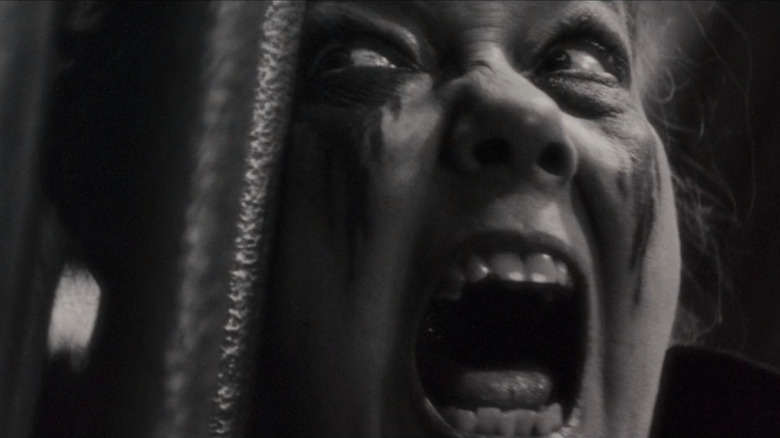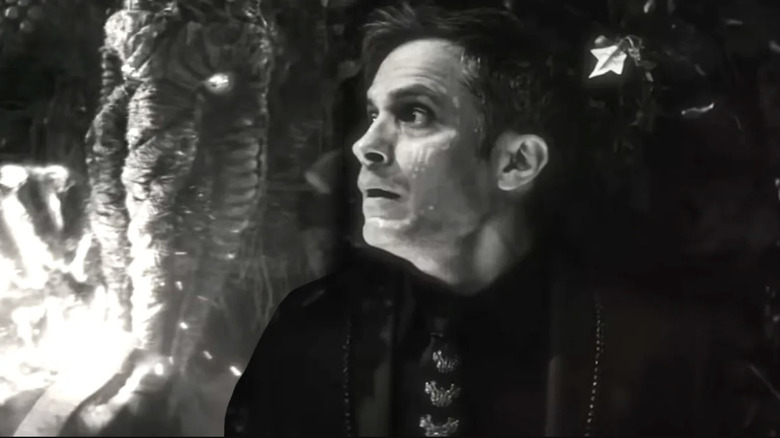How Pixar And Lost Influenced The Making Of Marvel's Werewolf By Night [Exclusive]
The new Marvel Special Presentation film, "Werewolf by Night," is a fantastic love letter to the monster movies of yesteryear, and one of the most distinctly unique projects to come out of Marvel Studios. Helmed by Emmy and Academy Award-winning composer and director Michael Giacchino, "Werewolf by Night" pushes the world of superheroes saving massive cities to the side, and instead highlights the aspect of Marvel's universe filled with monsters and monster hunters. The featurette managed to pull off in under an hour what the so-called Dark Universe couldn't accomplish with a series of movies, and did so without a garish CGI werewolf design.
The film is set on a dark and stormy night (as is tradition), where an underground cabal of monster hunters congregate at the Bloodstone Temple after their leader passes away. This means the proverbial throne as the head of the monster hunters is up for grabs, so the team is thrust into a competition. Whichever hunter is able to hunt and kill a captured monster on the temple grounds will become the new leader, and competitors are also fair game for hunting. It's a fight for survival, for supremacy, and an absolutely delightful watch for the Halloween season.
/Film's own Jack Giroux had the chance to chat with Michael Giacchino, and got the rundown on how Giacchino's work on both "Lost" and Pixar films helped him prepare for "Werewolf by Night." In a surprise to no one, the secret is in finding the cadence of the piece, and serving as a conductor to make sure everyone was playing their part.
The rhythm of the (werewolf by) night
Giacchino told Giroux that music was always at the forefront of his process. "I would tell the actors, 'Okay, here's the tempo. Very slow. This is the tempo of the music, here's how we're moving,'" he said. "We would do a first take and it would end up too fast ...let's just do it even slower, even slower ...it was a real communication." He also admitted to having written music prior to shooting, to be used as a means of introducing the mood and tone. "They'd be like, 'Oh yes, okay, I see now, I get it,'" he said. "It's a great way of setting a mood and getting them focused on what we were doing there." Giacchino also said that directing helped in his composing process, as he was constantly thinking about how he would score the scenes while watching the different takes and dailies.
Having worked on "Lost," "Inside Out," "Up," "Coco," and countless other projects, Giacchino's history of scoring had a direct influence on his directing. "Working on all of the movies that I have over the years, I've learned so much," he said. "It's an embarrassment of riches, the directors I have gotten to work with." Giacchino said he was privileged to have received "a masterclass in filmmaking," thanks to serving under directors like Brad Bird, J.J. Abrams, and Matt Reeves. "I've been making movies since I was nine years old, that's all I ever did," he said. "But to get to do it at a level with these sorts of people was just an incredible gift to be able to attend the school of life in that way."

